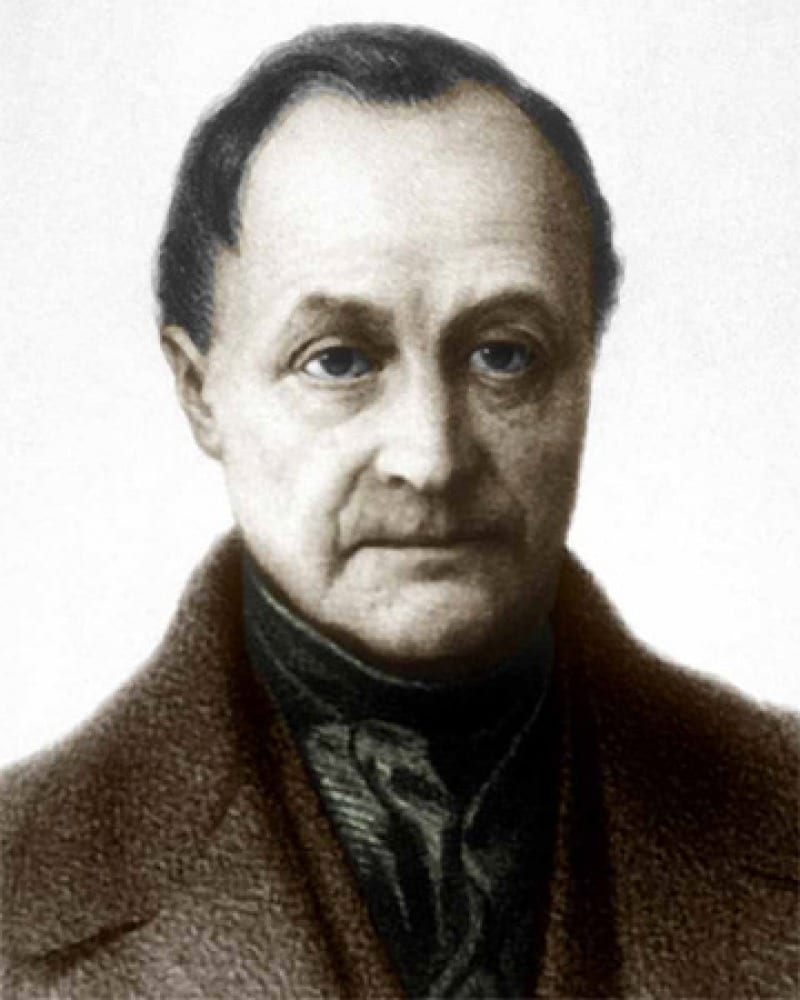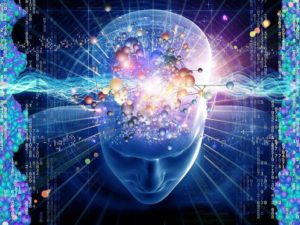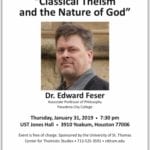Faith in Science? (Comte Part I)

Why should we call it a battle of ideas that we are involved in? Aren’t we tired of fighting?
I would like to emphasize the difference between two fundamentally distinct ways of viewing the world that have been around since man could doubt and have more friction today than ever before. It is not hard to see why one could argue theism and atheism are the most significantly opposite viewpoints: more than Democrats and Republicans, communists and capitalists, pessimists and optimists, and more than hedonists and stoics. Sure, in a few of the above examples, I could care less if the types ‘get along in discussion’ or have ‘common ground,’ for the sake of avoiding hurting feelings. But when the object in question is the existence of an afterlife and personal absolute being, especially one who is claimed to have revealed himself to mankind as is the case in most religions, then the way a person lives his life is altered. After that the rest is history…literally. Interests of the most deep seated and important type are going to conflict and this is why the new atheists consider religion to be not just wrong but dangerous. However, if the opposite is actually the case regarding faith, would it be better to accept conflict than to ignore the important information? I don’t particularly enjoy being called delusional.
As Catholics, according to Vatican I, we understand that knowledge of the existence of God may be reached through the reason (which many, including the man named below, would like to rename as modern science with a capital ‘R’), but that the knowledge that Christ was the son of God and that God is three persons in one are notions which have been revealed to man by God himself through tradition and scripture. As we all know, since the fall of the Roman Empire until the 15th and 16th centuries, Christianity–specifically Catholicism–dominated public life and was considered common belief. Things began to change as public questioning of the existence of God and theological principles became more and more acceptable. This acceptance has grown in depth and importance ever since then up until our present-day and during later times formed organized groups.
Still, why a ‘battle’? Well it is quite apparent that not everyone around agrees that Christ is the son of God. This also places us very often on the defense as many example news items will show. Does this mean there has to be a fight? When we apply the principles above, it means there is going to be a natural struggling with those who disagree because many times Christians can be viewed as if they aren’t simply superstitious or ‘simple-minded’ they are wasting their time and resources preparing for an afterlife.
In Matthew 28:16–20 the Great Commission, as it is called, takes place: “Go ye therefore, and teach all nations, baptizing them in the name of the Father, and of the Son, and of the Holy Ghost: Teaching them to observe all things whatsoever I have commanded you: and, lo, I am with you always, even unto the end of the world. Amen.” If you or anyone truly believes that Christ was the son of God how could you not wish to share this with others? If one half-heartedly believes it, he will care a lot less about reaching a resolution to the issue and a lot more about the discomfort of disagreement. It will be a natural desire that can be stifled by the opposition we encounter, by our own laziness, or by the relativistic view of truth. You can believe 2+2=3, I’ll believe its 7, and we don’t need to discuss why because this only leads to disruption, arguments and in the end, the ultimate value is personal liberty right?
But is religion really the source of the conflict? For me, the answer is that no matter what opinion about the world someone has, there is always going to be disagreement and, as I said above, the topic of God is going to be the hot tamale, the mother of questions and is therefore going to set off the most passionate debate. However….why say that it is religion’s fault? It’s only religion’s fault if God doesn’t actually exist. From my perspective, atheism is equally responsible–it certainly hasn’t been any less violent in the spreading of its viewpoint.
In the past three but mostly two centuries we have seen the application of a new philosophy growing. When the standard for knowledge about the world becomes modern empirical science alone (empiricism and positivism) and everything else is “concentrated in a lobe of the brain, and pronounced semi-real effect of atomic motions outside, they have performed a rather radical piece of cosmic surgery which deserves to be carefully examined.” (Burtt, Edwin A. The Metaphysical Foundations of Modern Science) Since God cannot be empirically verified, he is dumped along with many other things. No one made this more clear than Auguste Comte.
When the knowledge of God is gone, the standard for acting changes as well. Humanity itself, rivaled by no other concept of importance becomes front and center. Auguste Comte (1798-1857), the founder of positivism and sociology itself, was so excited by the acheivements and system of the modern scientific method that it became dogma for him. Did I say Dogma? Yes you heard me correctly. He was so confident in its methodology to explain anything that we need, any question that could arise in the future that he recognized it would become the greatest benefit to humanity. We could really ‘go places.’ And we have…to the moon in fact. However, he also founded the “The Religion of Humanity” which was described by Thomas Huxley as “Catholicism minus Christianity”. In addition to a “holy trinity of Humanity, the Earth and Destiny”, it had a priesthood. Why a priesthood? Now that is an important question for Catholics. The Catechism of Positive Religion written by Comte describes what it takes to be a priest of humanity:
“Thus the priest-scientist is to be a man with an encyclopaedic mind, they are to be tested severely for the priesthood must not be invaded by literary men with feelings and stump orators, for this would soon open the way for hypocrites. Humanity itself is the only great being, and by its scientific efforts, it finally replaces God, and, if its cult cannot be really systematized until God has been eliminated, his elimination will at last become a complete certainty thanks to that systematization.”
Comte, perhaps the greatest secular humanist of all time (though John Stewart Mill also founded a Religion of Humanity), saw it neccesary to imitate the religious tradition of the priesthood because religion is sociologically essential and a natural tendency. He believed that religion needed to be replaced rather than eliminated because he understood that man is a naturally religious being.
A bit more on Comte might be helpful to understand the admixture I was speaking about. The onset of systematized science has revolutionized the way many people think and where they place their trust. Comte, formulated in a bold way the thoughts of a revolution which will never die. The intellectual development of man follows what he called the Law of Three Stages—the theological, in which events were largely attributed to supernatural forces; the metaphysical, in which natural phenomena are thought to result from fundamental energies or ideas; and the positive, in which phenomena are explained by observation, hypotheses, and experimentation. He believed that empirical observation is the only way to know (facts) and that all other previous forms of ‘knowing things about reality’ were simply necessary steps on the path of development to reach the positivist stage or scientific stage. The Law of Three Stages is essential curriculum in modern day France. If I’m not mistaken a “Law” in science is fairly high up the ladder of ‘validity.’ Whether or not it is true, I want to know how this is as obvious as the law of gravity.
Still, why include a priesthood? Once the scientific stage has been reached, Comte realized that man still had a religious nature to him, so he founded his ‘church’ of positivism, which maintain the familiar structure of Catholicism in order to facilitate the transition to atheist humanism: “The Third Realm of the positive spirit has come, its spiritual power institutionalized in the Pontifex Maximus who functions and administers sacraments…it will have created institutions devised by the man who signs himself as ‘Fondateur de la Religion de l’Humanite’ (Founder of the Religion of Humanity)…” Comte believed it was essential that a systematic attempt be made to replace the current religious power with the only true religion of the worship of Humanity: “In the name of the past and the future, the theoretical servants and the practical servants of Humanity assume befittingly the general leadership of the affairs of the earth in order to construct, at last, the true providence, moral, intellectual and material; they irrevocably exclude from political supremacy all the various slaves of God, Catholics, Protestants, or Diests, since they are retrogrades as well as perturbators.” (Comte, Auguste, and Richard Congreve. The Catechism of Positive Religion or Summary Exposition of the Universal Religion. Thirteen Conversations between a Woman and Priest of Humanity. [Whitefish]: Kessinger Publ., 2008. Print. as well as in the Systeme, 4, pp. 532f.) A priest is another word for a leader. A priest is a leader of a theology, a way of viewing the world. Every ideology needs its leaders, and if they don’t exist, then they will either form or the idea will die. Why? Because we cannot keep our deepest views to ourselves. Nor should we despite the conflict they might cause. If you believe Christ is the son of the living God, Creator of the Universe and someone else doesn’t believe in a God, you can look the other way on that point, but the interactions between these archetypes are going to be superficial.
Recognizing the growing urgency for ‘progress’ Comte tried even to ‘convert’ theistic priests–by trying to win over the Jesuit order. He sent an ambassador to the General of the Jesuit Order suggesting that he associate himself with Comte saying:, “The abolition of state support for the Catholic Church would advance the free coming of the new spirituality, while the old spiritual power would gain the indepenedence and morality that is necessary for its positive transformation or its dignified extinction.”
Comte was ahead of his time and I believe that many of his goals in the foundation of this religion still exist though not in a nominal way. Today, I just picked up the book “Where The Conflict Really Lies: Science, Religion and Naturalism” by Plantinga and on the first few pages he says: “Some treat science as if it were a sort of infallible oracle, like divine revelation–or if not infallible (since it seems so regularly to change its mind), at any rate such that when it comes to fixing belief, science is the court of last appeal. But this can’t be right. First, science doesn’t address some of the topics where we most need enlightenment: religion, politics, and morals for example. Many look to scientists for guidance on matters outside of science, matters on which scientists have no special expertise. They apparently think of scientists as the new priestly class; unsurprisingly, scientists don’t ordinarily discourage this tendency. But of course a scientist pontificating on matters outside her field is no better than anyone else pontificating on matters outside her field.”
Before teaching modern science, we need to teach what the basis of scientia or knowledge (which includes modern scientific research) is to begin with, if we are to show the rationality of belief in non-scientific matters (which would include God.)
Part II can be found here.





Comments